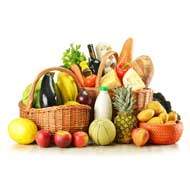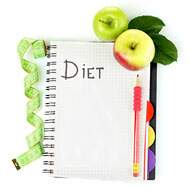Panchkarma Diet
Panchkarma is ancient Ayurvedic purification and cleansing therapy, which eliminates physical impurities and toxins from the body and rejuvenates mental function. Panchkarma therapy is generally advisable once a year for physical, emotional and spiritual wellbeing.
The treatment plan may take a couple of days or may last up to several weeks, depending upon the overall constitution of an individual.
Panchkarma therapy is divided into three stages.
- The preparation stage (Purva Karma)
- The cleansing stage (Pancha Karma )
- The rejuvenation stage
Panchkarma diet
The essence of the panchkarma therapy is to provide relief to an overloaded and fatigued digestive system. Panchkarma treatment proposes a mono-diet (one food diet) to accelerate the removal of toxins from the body and to expedite healing. A few weeks before the start of the main therapy (cleansing stage), the removal of sweets, dairy products, processed foods and stimulants such as tea, coffee, aerated and alcoholic drinks are recommended from the regular diet.
A week before the treatment, an alkaline diet consisting predominantly of whole grains and vegetables are advised. An alkaline diet neutralizes the effects of acidity in the body and assists in proper cleansing of the toxins.
According to Ayurveda, khichdi, a stew, prepared with basmati rice, mung beans, vegetables and clarified butter (ghee) is a highly favoured food during the therapy. The mixture rejuvenates the digestive process and prepares the system for the treatment.
During the cleansing stage, a cleansing fast is mostly advised. During the fast, a teaspoon of clarified butter with hot water is recommended on an empty stomach. A cleansing herbal drink consisting of water, cardamom, black pepper, fennel seeds, cumin and coriander powder is consumed throughout the day.
In the rejuvenation stage, a mono diet of the preparation phase is again advised for a few days to let the body adjust to the solid diet, gradually and slowly.
Tips
- Always fill the stomach to three-fourth of its capacity while eating.
- Eat in a calm environment.
Avoid external disturbances such as television and loud music. - Keep a regular schedule of eating and follow it daily.
- Rest for 5 to 10 minutes after a major meal.
- Eat cooked foods; raw foods should be consumed as side dish.
- Avoid processed, re-heated foods. Eat freshly prepared food.
- Chew the food properly.
- Include herbs in the dishes to enhance flavour and to aid in digestion.
- Avoid milk with meals. Warm water or fruit juice can be consumed.
- Stick to light vegetarian diet. It is easy on the system.
Panchkarma is a specialized treatment. All diet modifications and adjustments should be made in consultation with a qualified Ayurvedic specialist.



